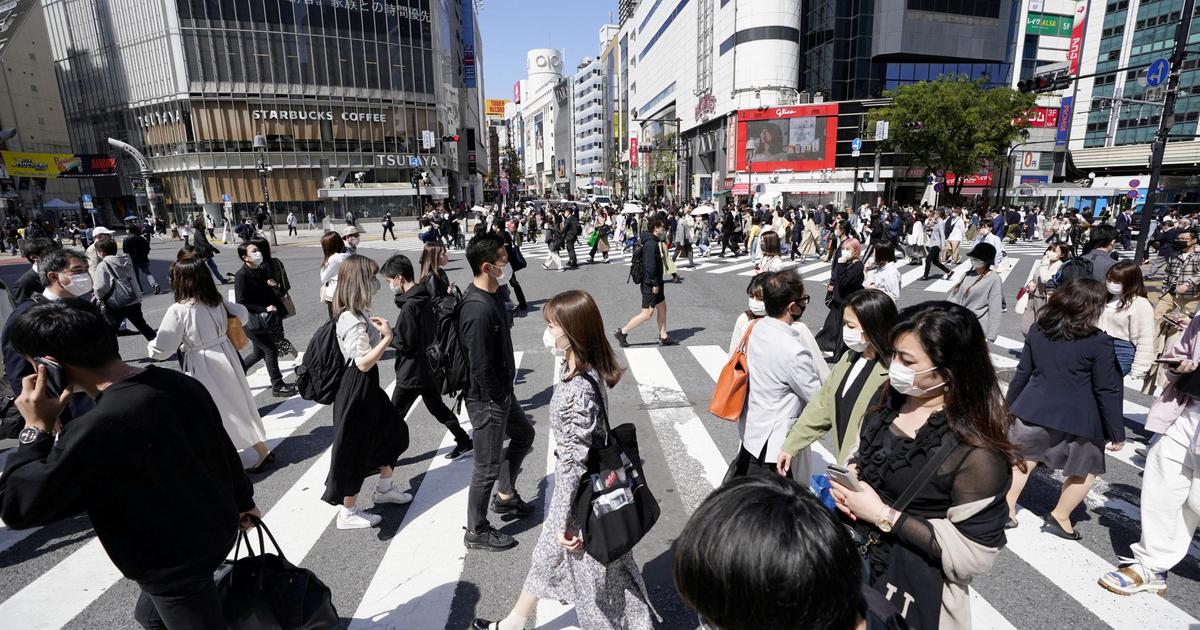weekly
Written by: Chen Yanlin
2020-02-11 07:00
Last updated: 2020-02-11 07:00Seventeen years after SARS, Hong Kong has ushered in another infectious disease epidemic. The outbreak of new coronavirus pneumonia (Wuhan pneumonia) continues to spread. In addition to the incident again highlighting the threat of human-animal common infectious diseases to humans, when masks on the market are hard to find, Wuhan pneumonia has gone beyond simple public health and medical issues and gradually evolved into a tube. Governance, social and economic crisis, has become a mirror of the government's ability to govern. This is not the first time and it will not be the last time. It is an indispensable lesson for the society to recognize the ravages of infectious diseases, digest and learn from previous experiences.
As of the morning of February 9, 37,198 cases of pneumonia in Wuhan had been confirmed in the Mainland, and 811 patients had died. (AP)
Since the first patient in Wuhan was diagnosed on December 1, to date, in addition to the mainland, confirmed cases have also occurred around the world. As of the morning of February 9, 37,198 cases of pneumonia in the Mainland had been confirmed in Wuhan, and 811 deaths were reported. Among them, Hubei Province alone had 27,100 cases. Hong Kong, Japan, South Korea, and even Europe and the United States have found confirmed cases. The number of confirmed diagnoses in various places is increasing, and there are more signs of community infection in Hong Kong recently. In the face of the epidemic, the estimates of epidemiologists are not optimistic. Liang Zhuowei, the dean of the University of Hong Kong School of Medicine, accepted a radio interview last week and said that Wuhan had closed the city since the 23rd of last month. The epidemic will "peak" in the next two weeks, while other regions will Lag, peaking in about three to four weeks. The rapid and large-scale spread of the virus has frightened the public. The number of people diagnosed worldwide has surpassed the SARS period in just over two months. Hong Kong has also revived the masks worn by the entire population 17 years ago, and even rushed to buy masks and daily necessities.
On the 12th of last month, the World Health Organization (WHO) officially named Wuhan Pneumonia as "2019 New Coronavirus" (2019-nCoV), a successor to the severe acute respiratory syndrome coronavirus (SARS) and the Middle East respiratory syndrome coronavirus ( (MERS), a new coronavirus that infects humans has reappeared. If we turn the time back by half a month, I believe most people haven't thought about it. Many cases of unknown pneumonia in Wuhan will evolve into a more serious crisis than SARS in 2003. In November 2002, the SARS virus appeared in Foshan, Guangdong, and spread across the three sides of the strait in a few months. At that time, SARS not only endangered public health and public life, but also produced ripple effects at the economic, social, and political levels. It will take a long time to recover. China Zhong Nanshan, an infectious disease expert, has proposed a method for treating SARS and has become the "first hero" in the domestic fight against SARS. After the epidemic, he co-authored a paper entitled "Reflections on the Practice of Fighting SARS and New Humanistic Spirits" with researchers, published in the first issue of "Guangdong Social Science" in 2005, which proposed that in addition to combating SARS, the public must review their thinking through the epidemic And behavior, the relationship between nature and humans, emergency mechanisms, government decision-making, etc. These are not only the lessons left by the epidemic, but also the opportunities for reflection brought by it. Learning from the past will not make mistakes repeatedly, so have we learned a lesson?
(Hong Kong 01 drawing)
How do people and nature coexist?
The nature of the epidemic originated from nature, whether it was Ebola virus first appeared in 1976, H7N9 bird flu in 2013 or Wuhan pneumonia this time. With the rapid advancement of medical technology, as more and more incurable diseases are possible to cure, new infectious diseases are constantly erupting. What is wrong with the interaction between man and nature?
At the beginning of the emergence of Wuhan pneumonia, all walks of life were worried about the recurrence of SARS. After inspection by researchers, it was found that the culprit of Wuhan pneumonia "new coronavirus 2019" was 87% similar to bat coronavirus, and it was also derived from bat coronavirus. The SARS virus has 79% similarity. Animal viruses generally do not appear in humans, but when the environment changes and the population becomes increasingly dense, the virus will continue to mutate in order to survive. Taking SARS as an example, the source host is bat, and it is transmitted to the intermediate host, civet, and finally to the human. When the virus mutates and the viral protein binds to the human upper respiratory tract cell receptor, the human is infected. Researchers at the Laboratory of Wuhan Institute of Virology, Chinese Academy of Sciences have successfully isolated the first bat SARS-like coronavirus from the samples. The results were published in the scientific journal Nature in November 2013. Why do wild viruses appear in human society? At that time, researchers pointed out that because of the game market and the habits of eating game, the virus was transmitted from bats to civets, causing an outbreak that year.
The new coronavirus in 2019 is also suspected to originate from Wuhan's game, eating wild animals, causing pathogenic microorganisms to multiply in different hosts. (Online picture)
However, Zhong Nanshan pointed out in the article that the civet cat is not the "culprit" of the SARS virus, but the "victim" of human unhealthy diet. He proposed that the relationship between human living environment and health is actually an ecological balance relationship. The etiology model of the disease shows that the occurrence of any epidemic is more or less related to the environment. SARS is a typical case: if the ecological environment as a whole does not have huge variations It is impossible for SARS to spread on a large scale; because "human conquest naturally exhibits global, rapid, and unprecedented destructive characteristics, causing nature to warn us of a crisis of survival", humans should abandon anthropocentrism and stop conquering Attitude towards nature.
Coincidentally, after 17 years, Gao Fu, director of the Chinese Center for Disease Control and Prevention, said at a press conference of the State Council Information Office last month that the new coronavirus originated from wild animals sold in the South China Seafood Market in Wuhan. Possible. The atypical pneumonia virus in 2003 originated from wild game in Guangdong. The new coronavirus in 2019 is also suspected to originate in Wuhan, eating wild animals, causing pathogenic microorganisms to multiply in different hosts. This incident once again highlighted the common human-animal infection. The threat of disease to humans is also obviously related to human bad eating behavior. At the beginning of the epidemic in Wuhan, short photos of "eat bats" and "drinks" from the mainland were spread wildly on social platforms. People in the Mainland love to eat game. If they continue to contact the game without inspection and quarantine, they will only be infected with wildlife again. The virus on his body caused the next tragedy.
Wuhan pneumonia has gone beyond mere public health and medical issues and has gradually evolved into a governance, social and economic crisis. (Photo / Photo by Lu Yiming)
The mainland people's awareness of health protection is insufficient, and many backward hygienic habits and lifestyles have yet to be revised. In addition, when two large public health accidents were caused by wild animals, they were blocked from the source, and the sound of cracking down on the game trade came up. Although China has regulations on the sale and purchase of game markets, as well as wild animal protection laws, the illegal operation of domestic game markets has always been serious, and supervision and enforcement have been weak. For example, Guangdong Province issued a ban in 2004 to comprehensively kill the civet in game markets. And closed the game market, but then the game market revived.
Yuan Guoyong, a professor at the University of Hong Kong ’s microbiology department, said in an interview with the Washington Post at the end of January that viruses that use wild animals as hosts are susceptible to mutation. They spread from animals to humans and then become infectious diseases with human-to-human ability: "You can Understanding that changing food or diet culture has always been difficult, but the lesson from a major epidemic is that we must respect life, ecosystems and wildlife habitats. "His remarks reflect that regulation is difficult despite the difficulty of change You have to do it, but the most important thing is to change from other disciplines to self-discipline.
A new outbreak of coronavirus pneumonia occurred in Wuhan, and the patients were initially mainly related to the South China seafood market. (China News Agency)
Epidemic prevention is better than epidemic prevention
In fact, since 1940, more than 60% of the approximately 400 emerging infectious diseases worldwide have been caused by animals, such as the bat ’s Ebola virus, monkey ’s HIV virus, and bird ’s H1N1 virus, coronavirus. Both Avian Influenza viruses are human-animal infectious diseases. In the last century, at least 10 infectious diseases have been transmitted from animals to humans. Even with the continuous increase in health protection monitoring, new pathogens continue to appear, even in developed countries in Europe and the United States. It is also difficult to escape.
In addition, with the development of politics, economy and society, transportation has become more accessible, population flow has become more rapid, and people's living patterns and behaviors have gradually changed. These have the opportunity to promote the spread of infectious diseases. SARS spread to all parts of the world in less than half a year. In this case of pneumonia in Wuhan, some experts pointed out that Wuhan is densely populated and has an animal market, which makes the local population more vulnerable to disease, and the population flow is enhanced by the Spring Festival. In 2004, three scholars from the University of Hong Kong, Pei Weishi, Guan Yi, and Yuan Guoyong published papers in the medical journal Natural Medicine. They also pointed out that "tourism" was one of the reasons for the spread of the epidemic. In the context of disease and social development, it is not difficult for us to predict that new infectious diseases will rise again and again, like accidents, which can be predicted by no country, and under the flow of population, no region can survive alone. We cannot predict the invasion of viruses. The biggest problem is instinct, such as indifference after the invasion.
The government has opened places such as the Sai Kung Outdoor Recreation Centre as quarantine centres to isolate people for mandatory quarantine. (Profile picture / Photo by Li Zetong)
Once a new virus is discovered, early isolation and decisive decision-making is the way to deal with infectious diseases. On December 1 last year, the first patient with unknown pneumonia had appeared in Wuhan, and it was not confirmed until the 8th. The local government only publicly reported on the 21st that "27 cases" had been found, referring to "stable and controllable disease" and eight more. Because the doctor reminded friends to pay attention to the epidemic in the WeChat group, the doctor became an "rumor maker" and was instructed by the police. The media also failed to report relevant news due to political pressure and gave up due supervision. Until December 31, the first official announcement issued: "27 cases have been found, of which 7 are in serious condition, and the remaining cases are stable and controllable, and 2 cases are expected to be discharged in the near future." The pneumonia caused by the virus, Wuhan City Health and Health Committee even said at the beginning of January this year that pneumonia was not "person-to-person". Before President Xi Jinping came forward, he must do his best to prevent and control the work. Party committees, governments at all levels and related The department "put the highest priority on the safety and health of the people" and "resolutely curb the spread of the epidemic." The number of diagnoses has soared across the board. This inevitably makes people wonder whether the loyalty of the chief executive is greater than everything. The history is always surprisingly similar. In the past, SARS concealed the epidemic because it did not dare to shake "social stability" and the economy. Many media have also tirelessly said many times that the outbreak of the epidemic seems to have been avoided.
In recent days, masks in Hong Kong are hard to find, but the government is still trapped in the free market and has not taken the initiative to assist the public. (Profile picture / Photo by Ou Jiale)
Undeniably, the reality is that at the beginning of the outbreak of a new infectious disease, people lack awareness of it, and patients may die before the pathogen analysis, so the diagnosis cannot be confirmed. In this case of Wuhan pneumonia, some patients had early symptoms and symptoms. It is not obvious. For example, the "Pneumonitis Diagnosis and Treatment Scheme for New Coronavirus Infection (Trial Fifth Edition)", which is officially published in the Mainland. Patients have fever, fatigue, and dry cough as the main symptoms, but mild patients will only have mild symptoms and no pneumonia manifestations. "Invisible patients" make epidemic prevention even more difficult. But because of this, the government is always vigilant, and the establishment of a sound social emergency mechanism, and even regional and international cooperation mechanisms have become particularly important to deal with sudden natural disasters and crises. Each inefficient response is not only a failure, but also a domino-type greater crisis. Closing the city, closing customs, and even mobilizing the national medical system are the last lines of defense of a remedial nature. Fighting the epidemic is important at the moment. Finding the source of the disease and controlling the epidemic will not happen overnight. After the epidemic, has a city reflected on social development and made policy decisions? Even with the rapid development of society, globalization, and ever-increasing population movements, are you planning ahead? When everyone in Hong Kong is worried, this may reflect the government's response. Since the first battle in 2003, there are still many bad habits and shortcomings. It has also exposed Hong Kong's long-term weakness in the allocation of medical resources and transmission of information.
In front of the citizens, not only the epidemic situation, but also the SAR government that has not been trusted for many years. How can the citizens' confidence be led by the government to fight the epidemic? (Profile picture / Photo by Yu Junliang)
If wearing a mask is the correct attitude to cope with the medical crisis, Hong Kong masks are hard to find these days, and even front-line medical care is no exception. The government first announced the failure to purchase masks, and then used the lowest bidder method to bid for masks. It was asked why the masks produced by the Correctional Services Department were not distributed to the public. Chief Executive Lin Zheng Yue'e responded that it would cause market competition. Sleeping on the street, in order to buy masks, some netizens even proposed to set up a local mask production line. Until last Thursday (February 6), the government allocated 30,000 masks to the Medical Association for resale to members. At present, both public and household hygiene products are in short supply. Of course, society should not buy blindly. At the same time, the government is still at the mercy of the free market. How can citizens trust the government's ability to properly handle the epidemic?
We must believe in scientific justifications for the treatment of diseases, but science may not be able to provide precise and detailed answers to every public health and epidemic prevention policy, and every measure must have political, legal and feasibility considerations. In front of the citizens, not only the epidemic situation, but also the SAR government that has not been trusted for many years. How can the citizens' confidence be led by the government to fight the epidemic? French writer Albert Camus wrote in his book Plague: "They think they can do anything, which means they think that natural disasters are unlikely to happen." I hope the ignorant "them" in his writings, It will not be our government official.
related articles︰
[Wuhan Pneumonia] Seven Suggestions
[Overwork] Beware of sudden death traps when Wuhan pneumonia is rampant
[Wuhan pneumonia] Frequent mistakes in prevention and control of epidemic situation in Wuhan
[Wuhan pneumonia] Empathy is more important than finger pointing
The above was published in the 200th issue of the "Hong Kong 01" weekly report (February 10, 2019) "Photos on the current ability to treat infectious diseases".
More weekly articles: [01 Weekly Page]
"Hong Kong 01" Weekly is available at major newsstands, OK convenience stores and Vango convenience stores. You can also click here to subscribe to the weekly newspaper to read more in-depth reports.
01Weekly report on Wuhan Pneumonia Lung Disease SARS Zhong Nanshan Yuan Guoyong Infectious Disease Medical System








